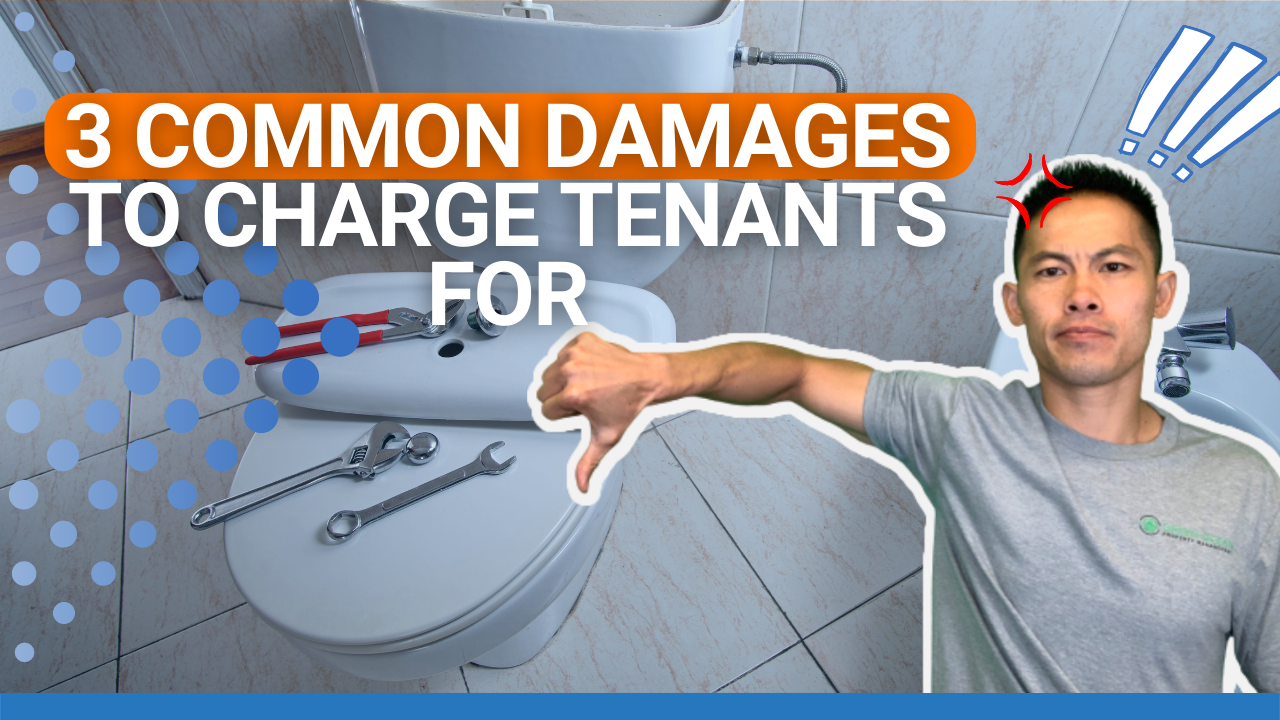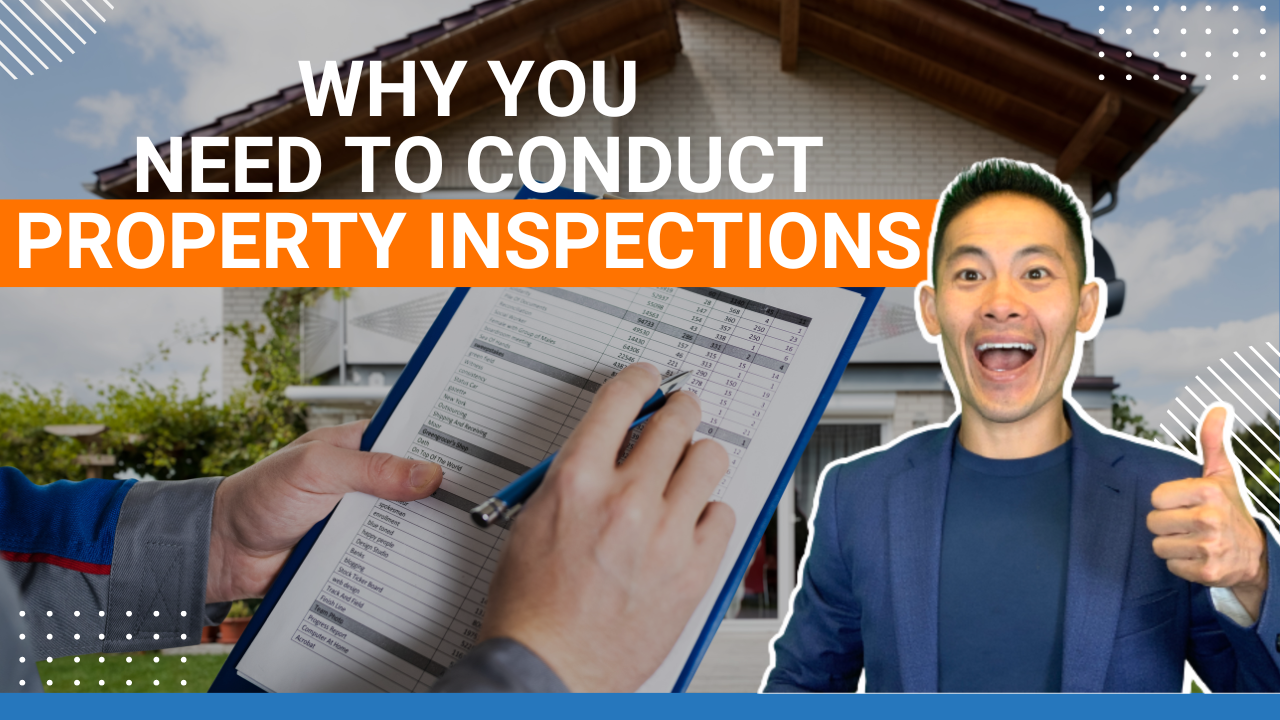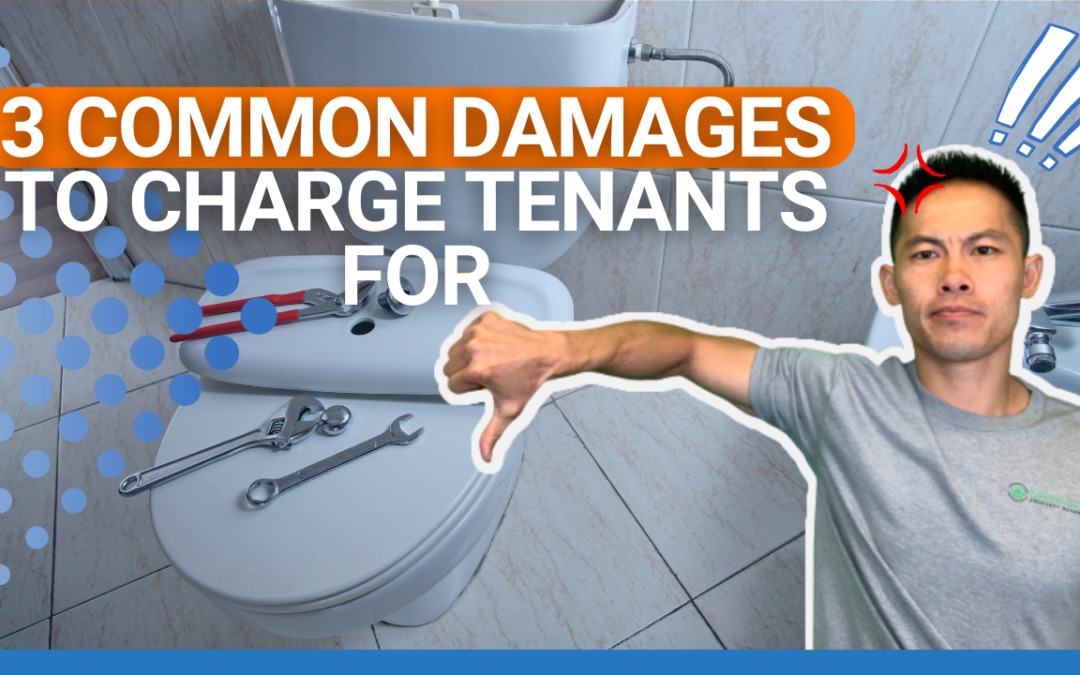
by J. Lau | Aug 29, 2022 | Insurance/Protecting your asset, Property Maintenance, Tenant Issues
Over the years, we have worked with countless landlords for hundreds of properties. We help our landlords earn and save money, but we also hold our tenants responsible for certain damages they cause.
Here are the three common damages that you can charge tenants.
Why We Charge Tenants
As a proactive property management company, we always look out for our landlords’ best interests. We think of ways to save our landlords money.
But, most importantly, we hold our tenants responsible for their actions and the damages they incur.
3 Areas Where Tenants Pay for Damages
Whether you’re a small-time landlord or own several properties you rent out, there’s always something tenants can do that will cost you money.
As an overview, these are the three most common damage you should charge tenants for.
1. Clogged toilets
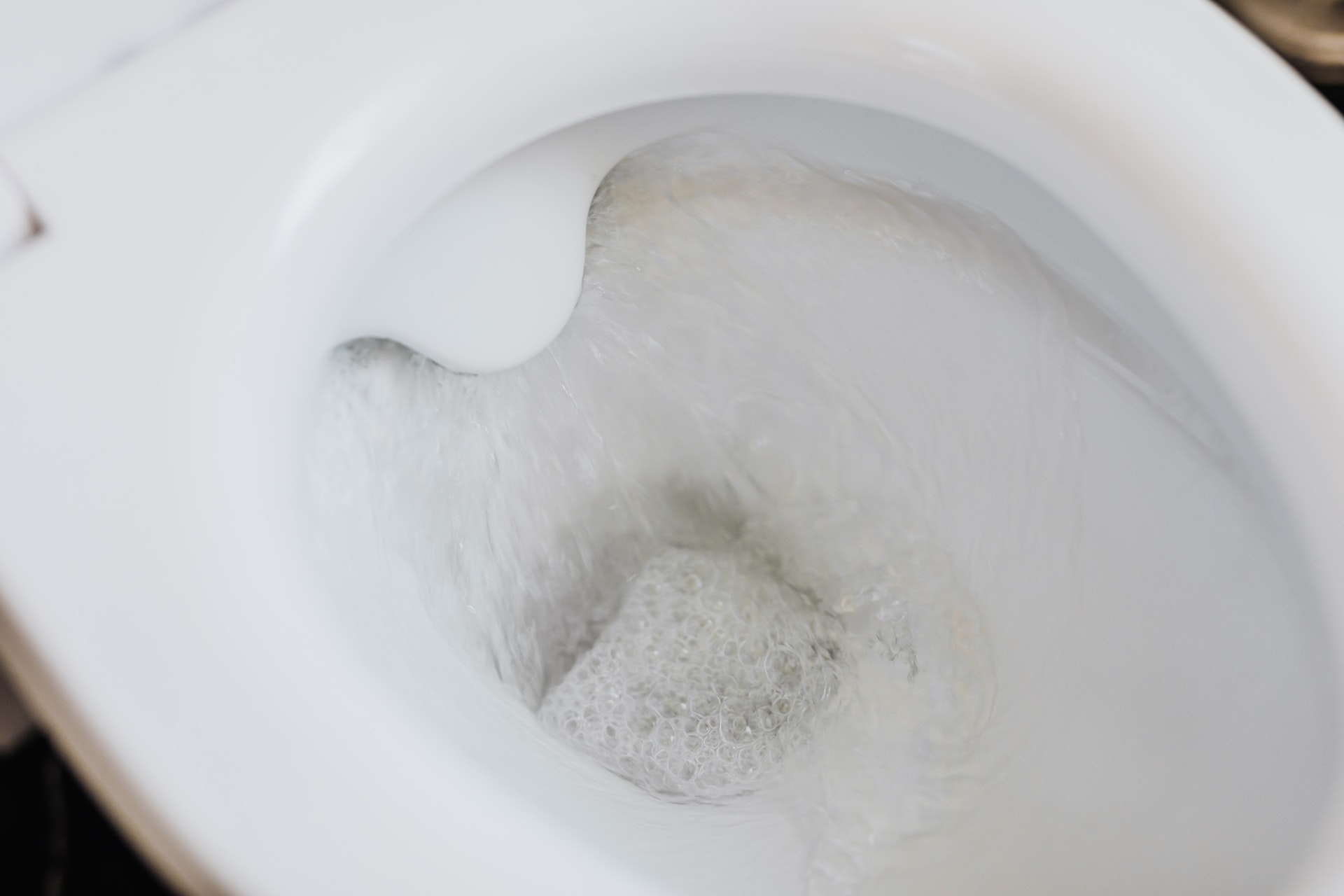
As part of our regular property inspections, we always ensure that the bathrooms are in good condition, especially the toilets and their flush.
But sometimes, tenants will flush something on purpose or by accident which can cause clogging. The most common bathroom items to be flushed down the toilets are toothbrushes, tampons, or toilet paper.
Of course, if they call us about clogged toilets, we come over and fix them. But we bill them back for the charges as stated in the lease.
2. Backed-up sinks
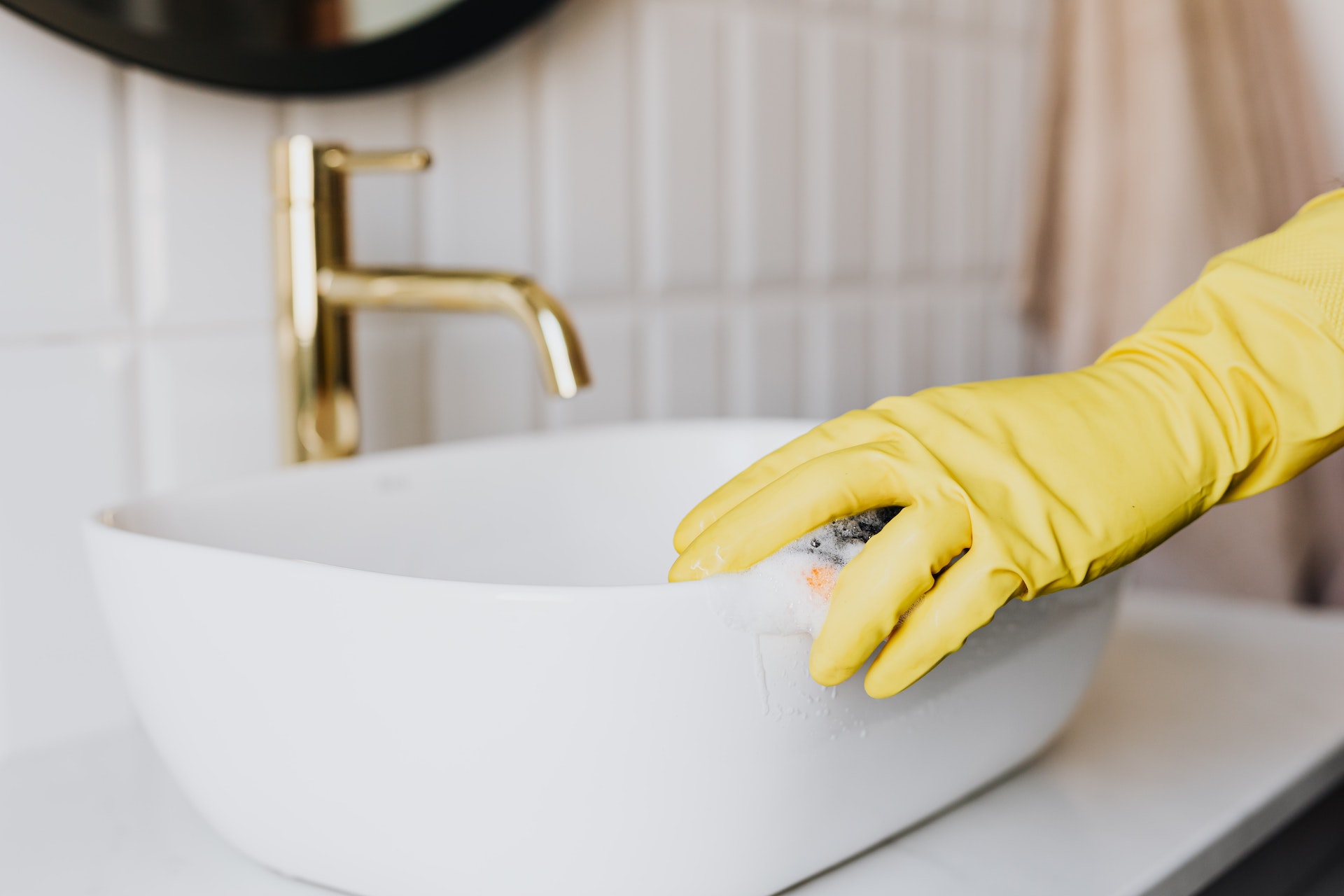
Kitchen and bathroom sinks are also prone to damage. Most kitchen sinks also have disposal.
This makes kitchen sinks likely clogged by bottle caps, oil, or leftovers flushed down the drains, causing backups.
Since sink backups are caused by things that can be prevented, it is something that tenants are responsible for. So for disposal cleanup or repair, we will bill tenants for the costs.
3. Repainted walls
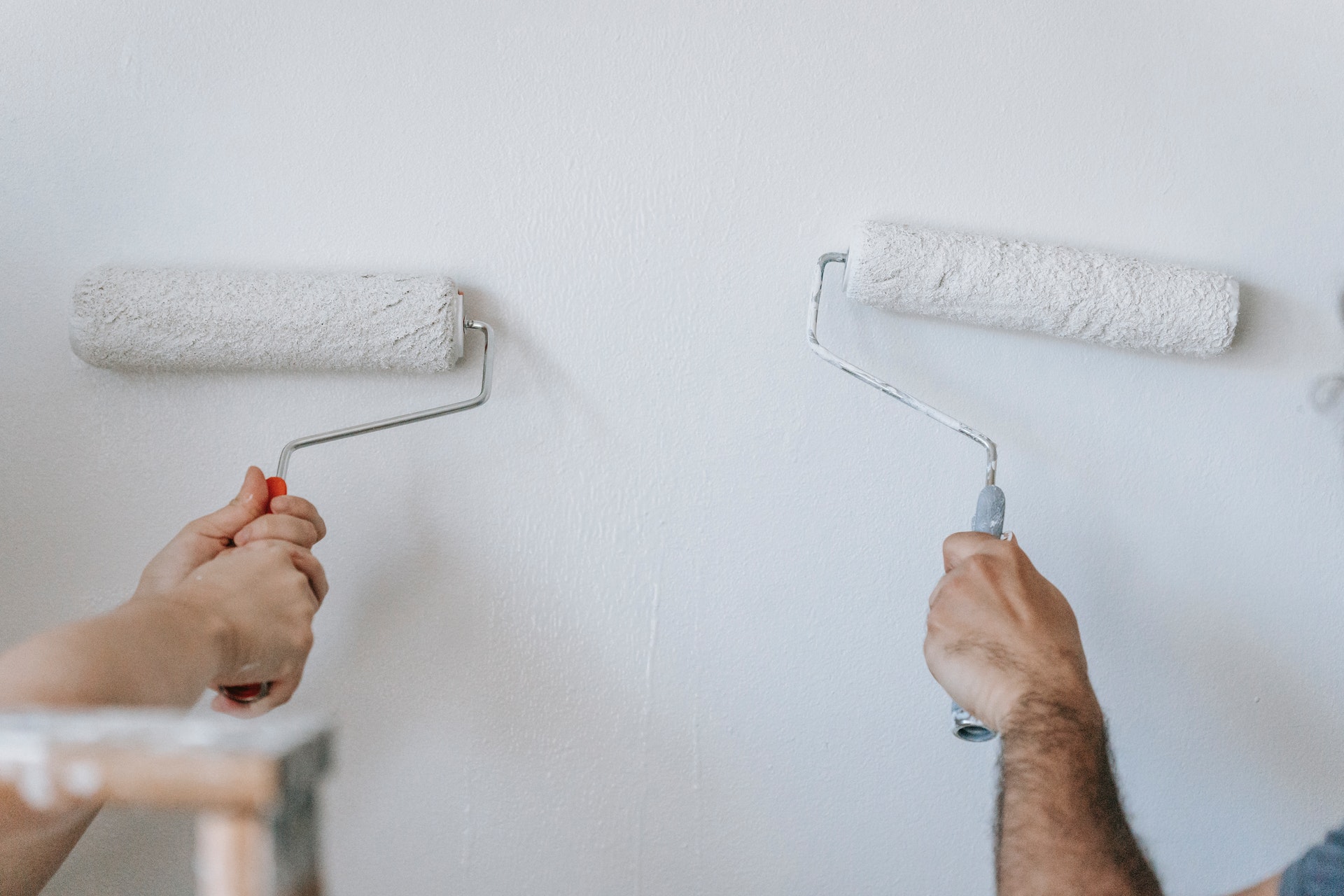
To save on painting costs, we typically use the same paint color in all of our properties. Doing so makes it easy for us to know when tenants change the wall paint.
If they paint the walls, they must change them to our standard color. The paintwork must be done by professional painters who would charge a set price which we would then send the bill to the tenant.
So tenants know how much the painting costs would be, and we include this in the lease. They must get our approval in writing if they want to change any paint color.
If they didn’t seek our approval and the paint is unchanged when their lease expires, we will still charge them when we have the walls repainted.
The Landlord Tutor Promise
To know more about holding your tenants accountable and minimizing your expenses, join the Landlord Tutor community and sign up here.

by J. Lau | Aug 11, 2022 | Insurance/Protecting your asset, Property Maintenance
The math behind hot water tanks and their warranties is not something to overlook. Here is a brief explainer about some water heater facts and why you should check on your warranty today.
Common Water Tank Warranty
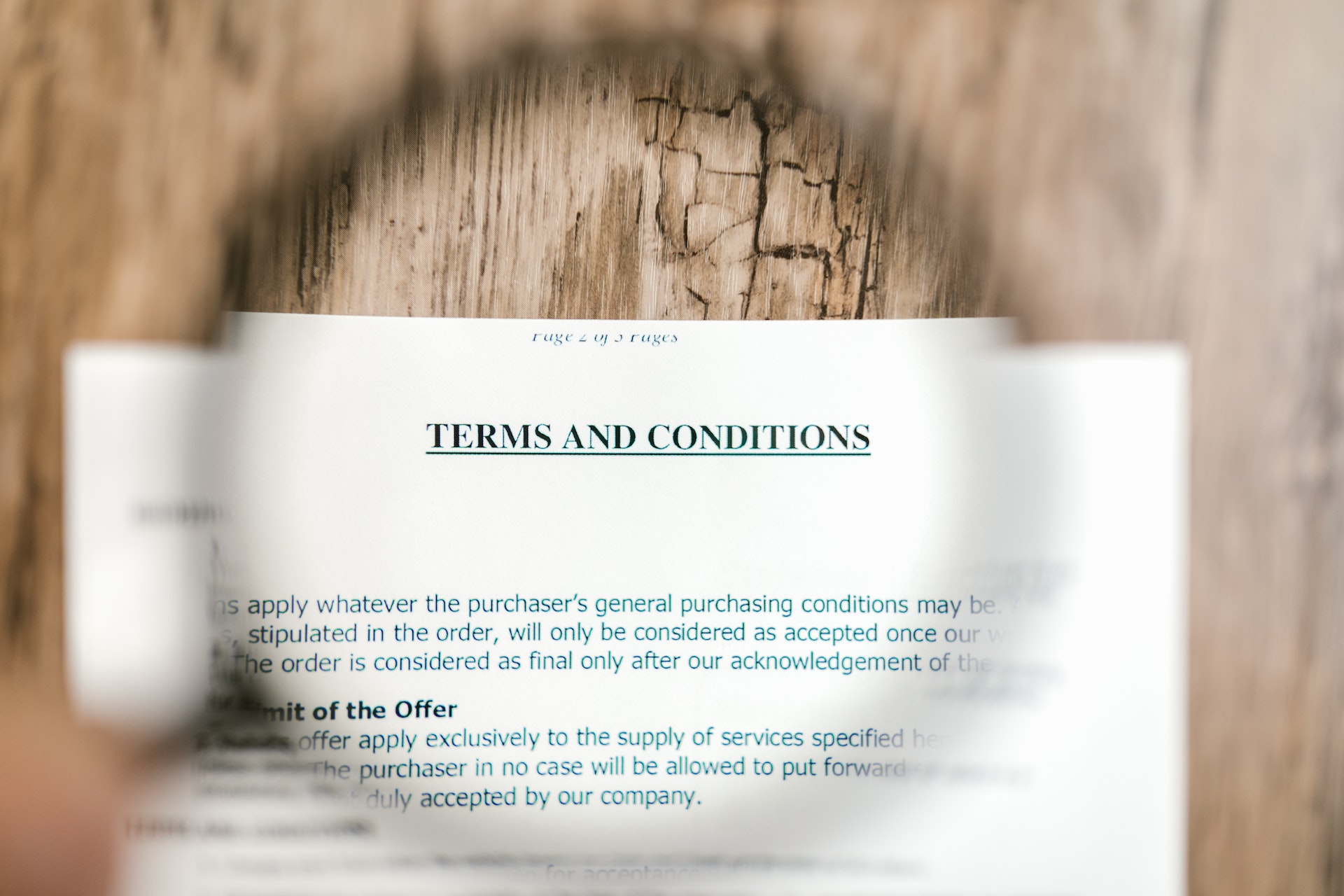
Water tanks usually come with 6, 10, or 12-year warranties, with the price increment at $100 to $250 at most.
Many of our landlords want an additional four years from a hot water tank, but here’s the truth about it. Even at years 6 to 9, it’s not like you get a brand-new hot water tank.
Sellers see how much time is left on your warranty and will give you a pro-rated amount. Let’s use a $1000 example for a hot water tank. If that hot water tank has a 10-year warranty and you are already in your 9th year, the warranty will only give you $100.
You are not getting an entire brand-new tank for anything at year nine; you must pay another $900.
Most landlords think their water tank is covered or that it is under warranty. Worse, they think they don’t have to pay for it!
The warranty does not pay for labor. The plumber still has to return the tank and get a new one. Not all plumbing companies will go to Home Depot to return and get you a new water tank.
What Makes a Better Water Tank Warranty?
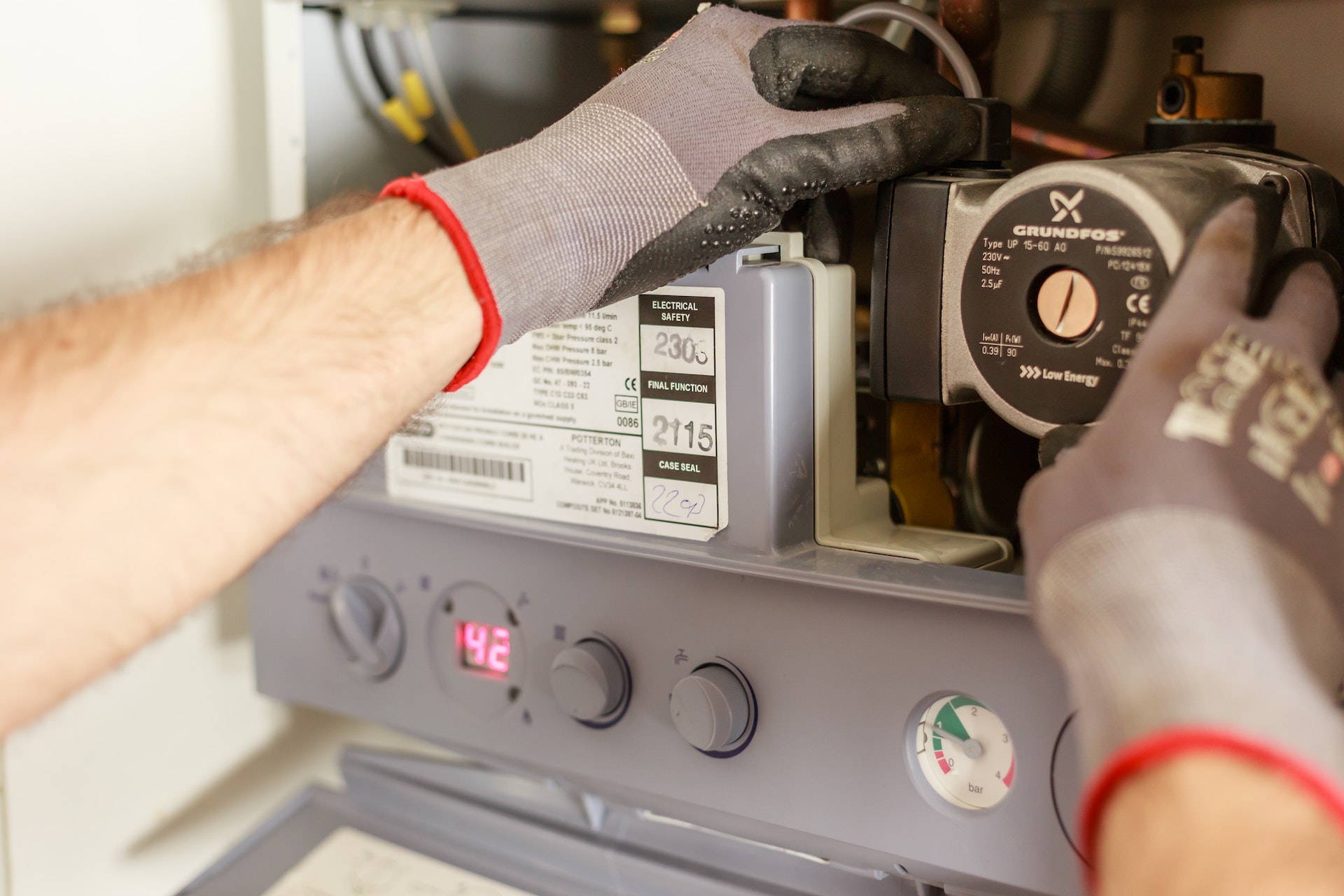
When it comes to warranty, there are hot water tank companies that guarantee a full value. It is amazing how companies will make it a little nicer to extend longer because you are paying for it.
Some hot water tanks last a long time. You want to be proactive about hot water tank maintenance, especially if they are located on higher floors.
A damaged hot water tank can flood an entire unit with 40 to 50 gallons of water. If located somewhere upstairs, water can flood the rest of the floors beneath it. The damage might be more manageable if the water tank is in the basement.
The Landlord Tutor Promise
To know more about purchasing hot water tanks, saving money, and understanding warranties, join the Landlord Tutor community and sign up here.
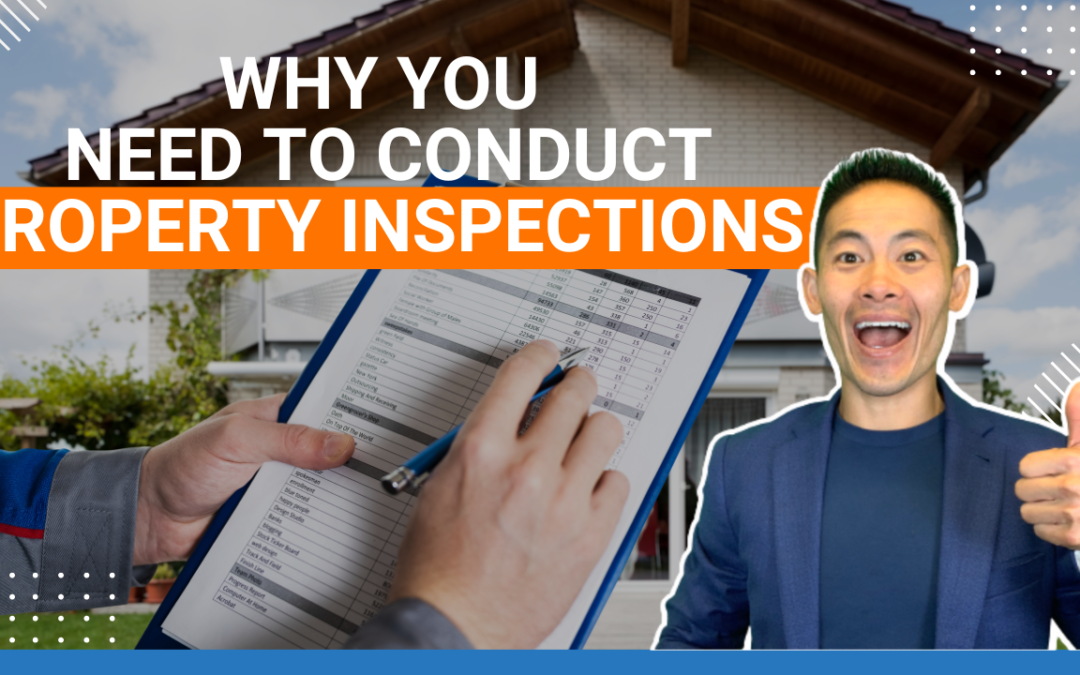
by J. Lau | Aug 8, 2022 | Insurance/Protecting your asset, Property Maintenance
A thorough inspection is one of the most important aspects of owning an investment property. Today, I explain why you need to conduct these inspections from my perspective as a licensed home inspector.
Why You Need Property Inspections
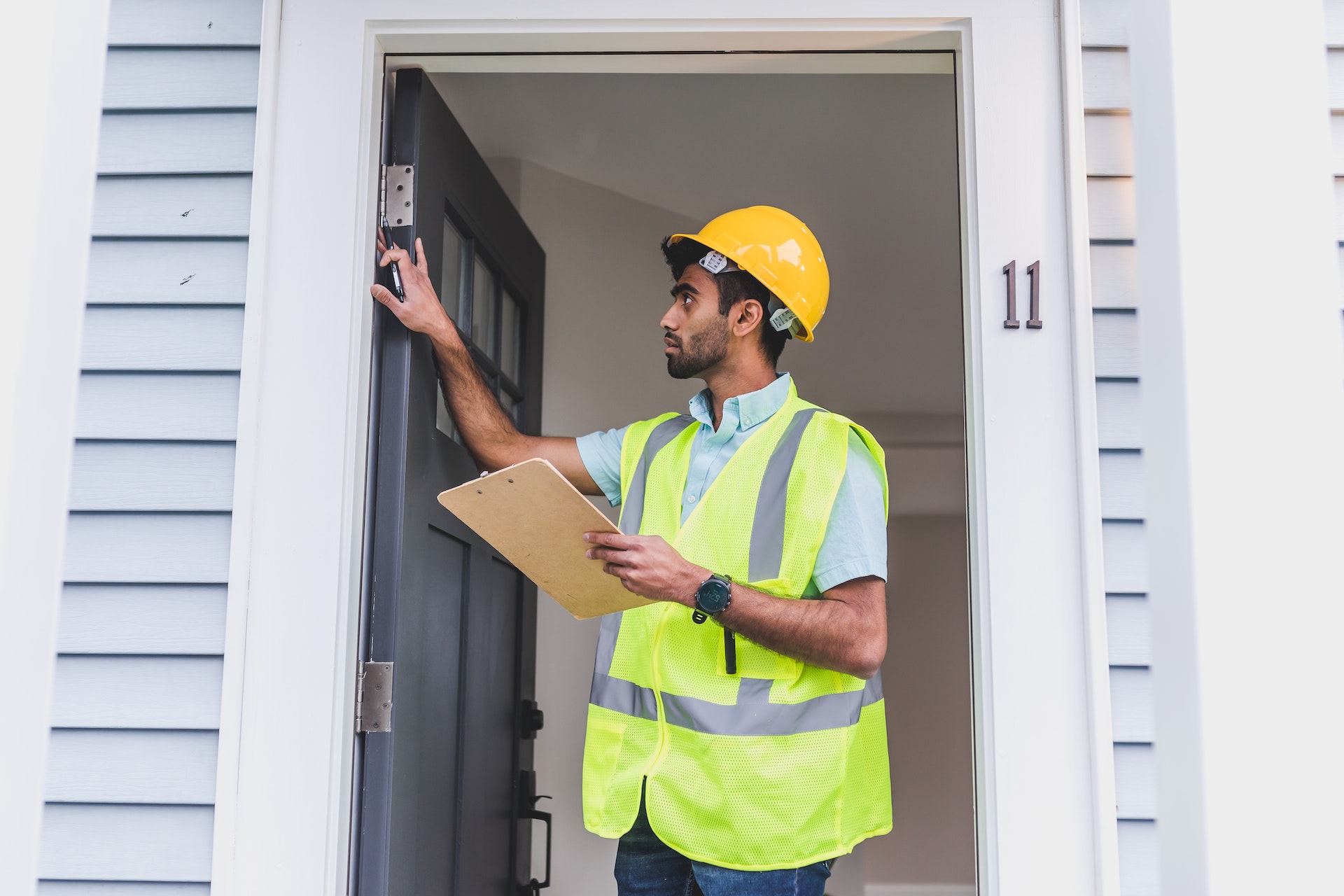
Property inspection is when you or a licensed home inspector walks through the entire property and thoroughly checks it for any issues or damages.
It is one of the most basic management tasks; whether it’s a minor check-up or a thorough inspection, property inspections help you ensure a property is functioning to its maximum potential.
Here are three reasons why you shouldn’t skip inspections on your property:
1. Avoid liabilities
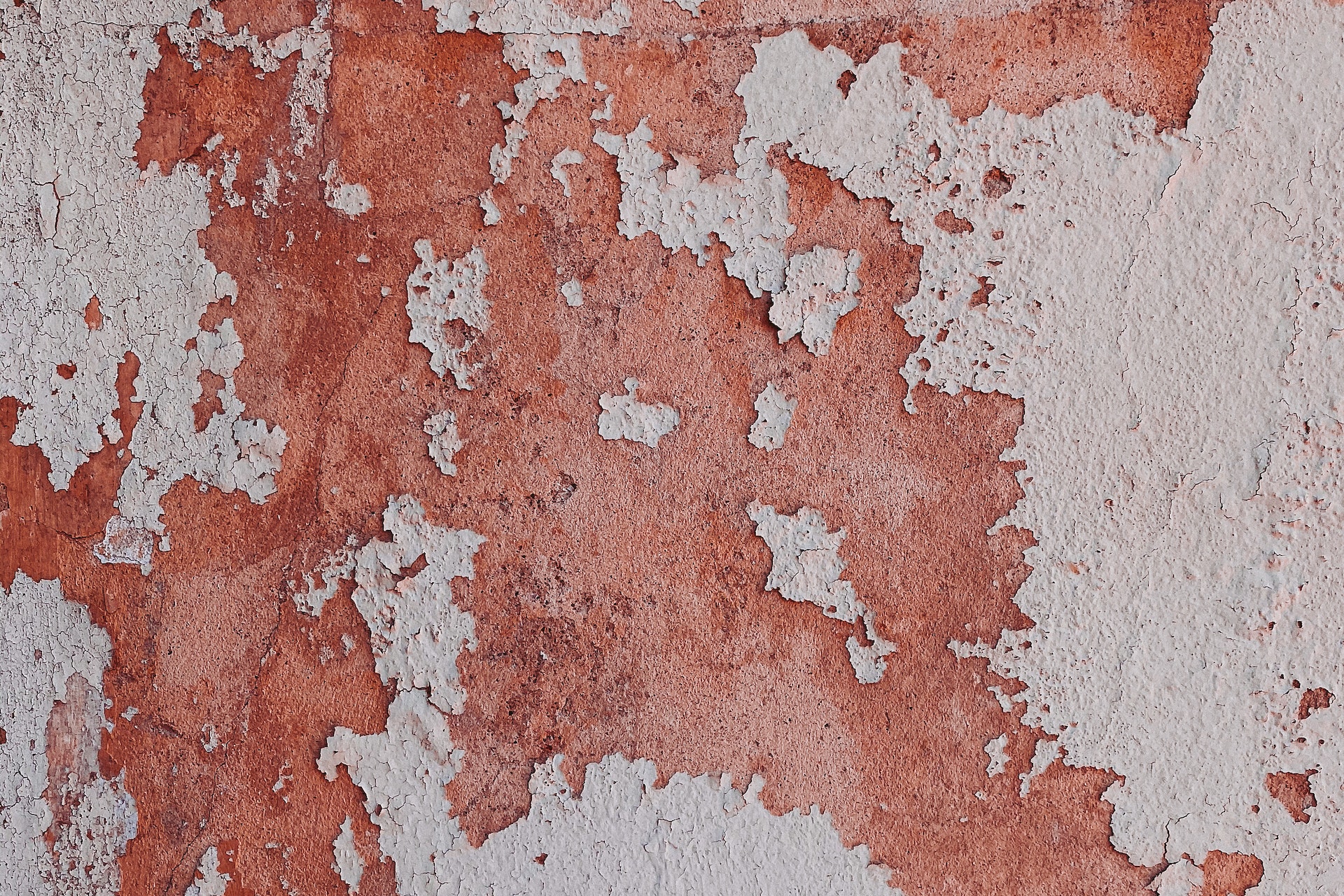
Loose steps, flaking paint, and busted lighting are some issues that could get you into trouble.
Anything that can cause someone to get hurt would be your responsibility. These are all liabilities that you can get sued for and would go under your insurance, and you wouldn’t want any of that.
2. See how tenants treat the property
We conduct inspections twice a year using the software called zInspector. It allows you to document your property’s condition with photos, videos, and detailed annotations that are securely stamped with the date and time and geo-located to the property address for easy reference.
Your property’s condition is important, whether you’re putting it up for sale or when it’s being used as a rental. You should conduct property inspections before you offer a renewal on your lease or while the current tenant is still staying in the property.
We may offer a lease renewal if they keep the property in good condition. If they’re not, we might not offer that renewal, but at least we can talk to them about remediating the damages and treating the property better.
3. Monitor and record damages

Probably the most important reason to conduct property inspections regularly is to have documentation. Even if tenants claim not to be responsible for the current damages on the property, you can show them proof.
You can use those inspection reports to compare the state of the property before and after they occupied the unit. With documentation, you can charge them for repair costs by deducting the amount from their security deposit.
The Landlord Tutor Promise
My experience and expertise as a property manager and home inspector allow me to give insights into how property inspections can help protect you and your investment property.
Join the Landlord Tutor community and sign up here to learn more about property inspections and keeping your investment properties profitable.

